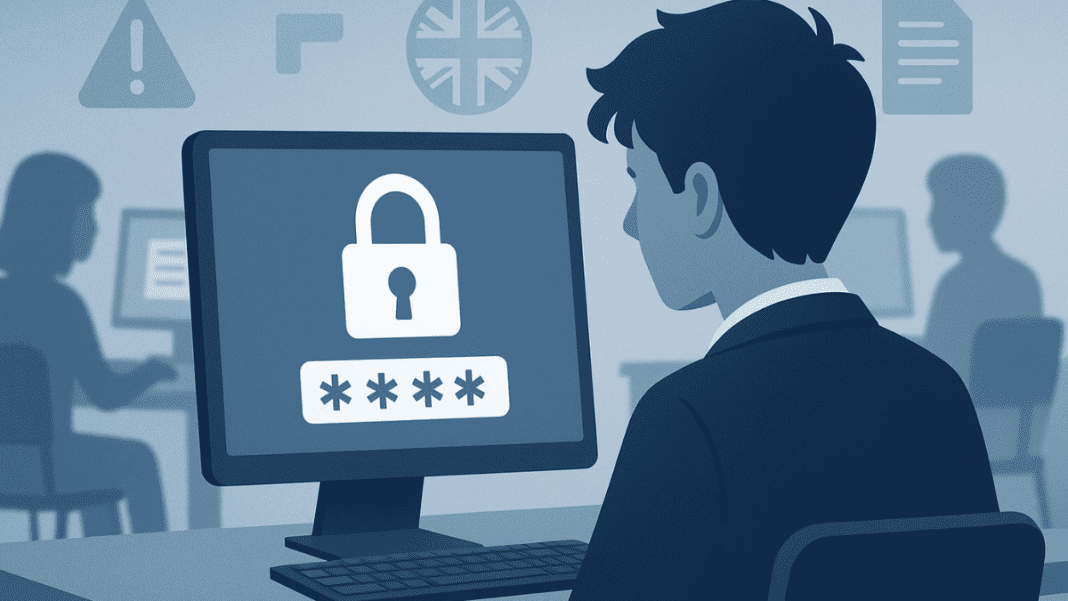A major data breach has struck South Korea’s financial sector, with information from around 20 small and medium-sized private equity funds compromised in a hacking incident carried out earlier this month, industry officials confirmed Monday.
According to sources familiar with the matter, the Russian-speaking ransomware group Qilin infiltrated a cloud server operated by a domestic IT subcontractor. The server was widely used by asset management companies handling private equity operations, exposing highly sensitive records.
Preliminary investigations indicate that the stolen materials include tax-related filings, internal employee data, and personal information of investors linked to the affected firms. While the full extent of the exposure remains unclear, cybersecurity experts say the attack could involve thousands of pages of confidential documentation.
Qilin, which has been active across Europe and Asia, claimed responsibility through its dark web portal. The group has previously targeted logistics, manufacturing, and healthcare companies, but this marks one of its most significant intrusions into South Korea’s financial industry.
Binance founder warns crypto firms of North Korean hackers posing as job seekers to steal assets
No Immediate Monetary Loss Reported
South Korea’s Financial Supervisory Service (FSS) stated that, as of Monday, no confirmed cases of monetary damage or stolen credit information have been reported. Authorities emphasized that they had prior knowledge of the breach and have been closely monitoring the incident.
“We are aware of the situation and are working with law enforcement and cybersecurity specialists to limit secondary risks,” an FSS official said. “At this stage, there is no evidence that core banking data or payment credentials have been leaked.”
Despite this assurance, experts warn that the release of investor details could trigger identity theft, targeted phishing, or reputational harm for the firms involved.
The Qilin ransomware group, known for operating a “ransomware-as-a-service” model, leases its tools to affiliates who launch attacks in exchange for a share of the ransom payments. Analysts note that the group often posts samples of stolen data online to pressure victims into paying.
In this case, Qilin has already published a portion of the alleged documents, including scanned invoices and corporate communications, raising concerns that more sensitive files could soon be released if ransom demands are not met.
“The group’s modus operandi is to embarrass and intimidate its targets,” said Kim Seung-hwan, a Seoul-based cybersecurity researcher. “The fact that financial firms are now in the crosshairs shows that attackers are aiming for both money and high-profile visibility.”
Cyber war erupts as Russian-backed hackers strike Poland’s hospitals and water supply
Comparisons with Past Incidents
The breach comes on the heels of other significant cybersecurity episodes in South Korea. Lotte Card Co., the nation’s fifth-largest credit card issuer, suffered a massive leak in 2024 that exposed data belonging to nearly 3 million customers. That incident sparked a parliamentary review and forced financial firms to increase spending on IT security infrastructure.
Industry analysts say the latest breach highlights persistent weaknesses among subcontracted IT service providers, which often lack the resources to implement robust defenses. “Hackers are not always attacking the banks or funds directly,” noted one financial security consultant. “They are targeting the weaker links in the supply chain—cloud providers, payroll services, or external vendors that hold sensitive data.”
Government and Industry Response
In response to the Qilin attack, South Korean regulators have begun a coordinated investigation with the National Police Agency’s Cyber Bureau. Officials are also in contact with international counterparts, including Interpol, given the cross-border nature of ransomware crimes.
Financial companies impacted by the breach have been instructed to notify investors, review existing security protocols, and prepare for potential litigation if damages are proven.
Meanwhile, the Korea Financial Investment Association (KOFIA) issued a statement urging asset managers to reassess their reliance on third-party IT systems. “This case is a wake-up call for the entire sector,” the group said. “Firms must recognize that digital resilience is no longer optional—it is a core part of investor protection.”
$90 million stolen, banks crippled, air defenses hacked —Iran and Israel locked in shadow war
Potential Implications
While the stolen data may not immediately translate into financial theft, the reputational risks for South Korea’s private equity industry are significant. International investors often view data protection standards as a measure of reliability. Any perception of weakness could impact fundraising for future funds.
Furthermore, the breach may strengthen calls for tougher cybersecurity regulations in the financial sector. Lawmakers have already proposed requiring firms to conduct annual penetration testing and to disclose vendor risk assessments to regulators.
“The government has emphasized digital transformation in finance,” said Professor Lee Ji-won of Korea University’s Graduate School of Information Security. “But transformation without security creates a fragile ecosystem. The Qilin case shows what happens when speed is prioritized over safety.”
As the investigation continues, authorities are working to verify the full dataset exposed. Security experts expect Qilin may attempt to auction off the data on underground forums if ransom demands are not met. For now, investors and employees connected to the affected funds are being advised to monitor financial accounts, update passwords, and watch for suspicious communications.
Russian Hackers Breach Norwegian Dam in Shocking Cyberattack
The breach underscores the growing scale of ransomware threats worldwide, as organized cybercrime groups leverage encryption tools and cryptocurrency payments to extort victims across borders.
With South Korea’s financial sector already under scrutiny after a series of high-profile leaks, the Qilin attack could prove to be a turning point in how regulators and companies confront the rising tide of cyberattacks.
